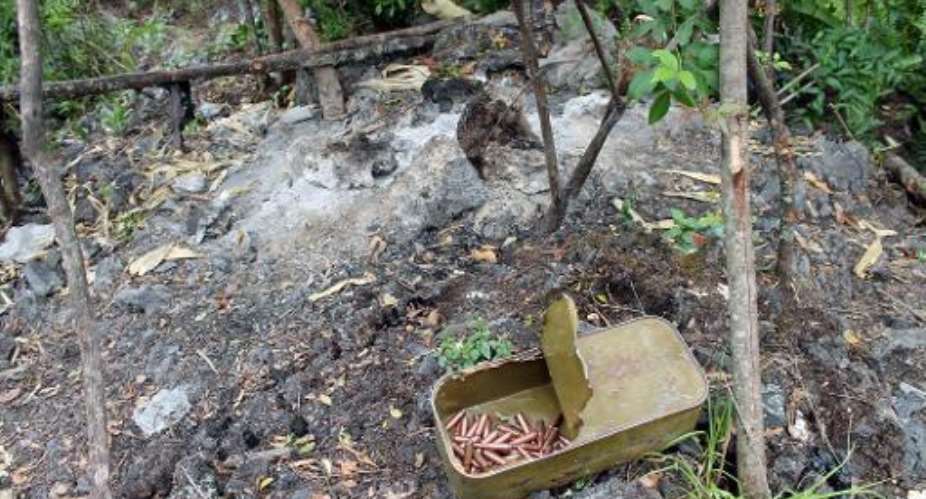Kinshasa (AFP) - The Democratic Republic of Congo army has launched a fresh offensive against Rwandan Hutu rebels in the east of the country, an army officer participating in the operations said on Friday.
"We have been ordered to hunt down the FDLR (Democratic Forces for the Liberation of Rwanda) and we recovered some positions," an army based in the eastern Virunga National Park told AFP.
Several armed groups operate in this Congolese park which has been designated as a World Heritage Site.
The new offensive in the North Kivu province was launched on Thursday, a council of ministers report published Friday said.
Military operations are ongoing in the Rutshuru territory on the border of Rwanda and Uganda, North Kivu civil society groups said in a statement confirming the government report.
The first army offensive against the FDLR took place on Tuesday in the South Kivu province, also in the east.
Rwandan rebels have been active in North and South Kivu provinces since older members of the movement fled across the border in 1994.
The government says there have been "significant results" since the operation in the region.
Seventy-five fighters have surrendered, 42 of whom have been handed over to Monusco, the UN mission in DR Congo, a government source said.
Another 32 might be repatriated to Rwanda, he added.
Older members of the FDLR are held responsible for taking part in the 1994 genocide in neighbouring Rwanda, when at least 800,000 people, mainly from the Tutsi minority, were massacred.
The killers fled across the border when a mainly Tutsi rebel front led by Paul Kagame, the current president of Rwanda, seized power after three months and ended the genocide.
The DRC government of President Joseph Kabila has been under international pressure to tackle the FDLR, which is among the most intractable of many armed groups operating in the North and South Kivu provinces, displacing scores of thousands of villagers.
The Rwandan rebels, numbering between 1,500 and 2,000, are blamed for killings, rapes, lootings and the forced enlistment of children in the resource-rich Kivus, where they also traffic in timber and gold.





 Beige-bank trial: Beige Bank disobeyed BoG — Prosecution
Beige-bank trial: Beige Bank disobeyed BoG — Prosecution
 NACOC staff arrested over cocaine smuggling
NACOC staff arrested over cocaine smuggling
 Controller and Accountant General resigns
Controller and Accountant General resigns
 Election 2024: Mute voices of politicians with 'sharp tongue' — Security Expert ...
Election 2024: Mute voices of politicians with 'sharp tongue' — Security Expert ...
 NDC opts out of Ejisu by-election
NDC opts out of Ejisu by-election
 Recommissioning of Ameri Power Plant an indication of clueless govt – NDC
Recommissioning of Ameri Power Plant an indication of clueless govt – NDC
 Love text message exposes pedophile
Love text message exposes pedophile
 Palm wine tapper kills wife over infidelity at Bogoso
Palm wine tapper kills wife over infidelity at Bogoso
 Dome Kwabenya: Mike Ocquaye washes woman panties for votes
Dome Kwabenya: Mike Ocquaye washes woman panties for votes
 MASLOC former boss sentenced to 10 years in prison with hard labour
MASLOC former boss sentenced to 10 years in prison with hard labour
